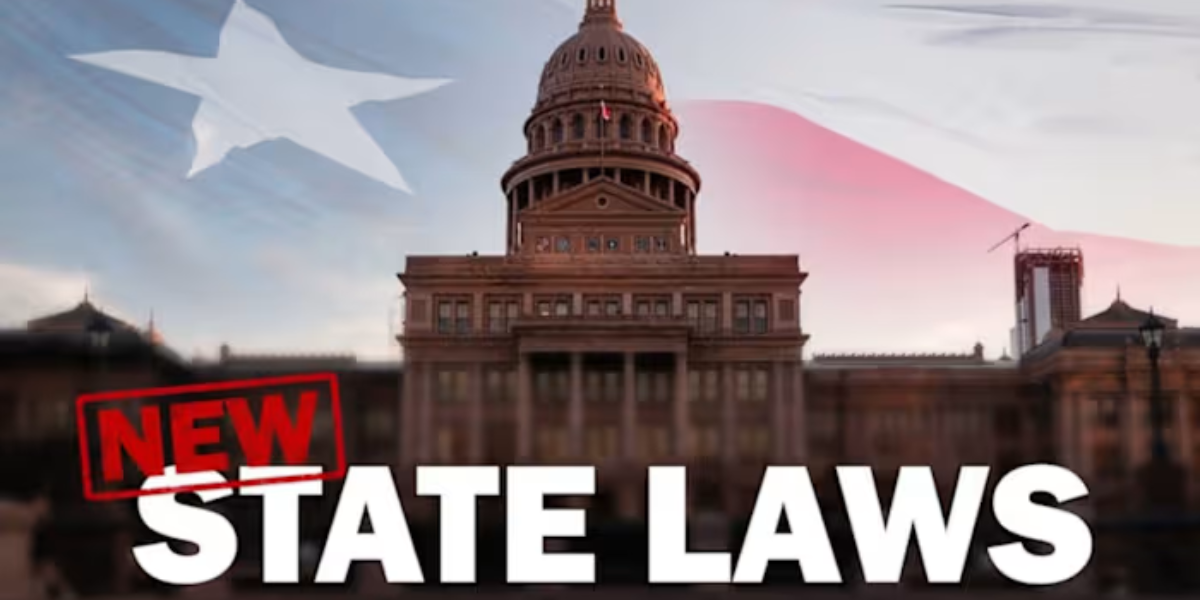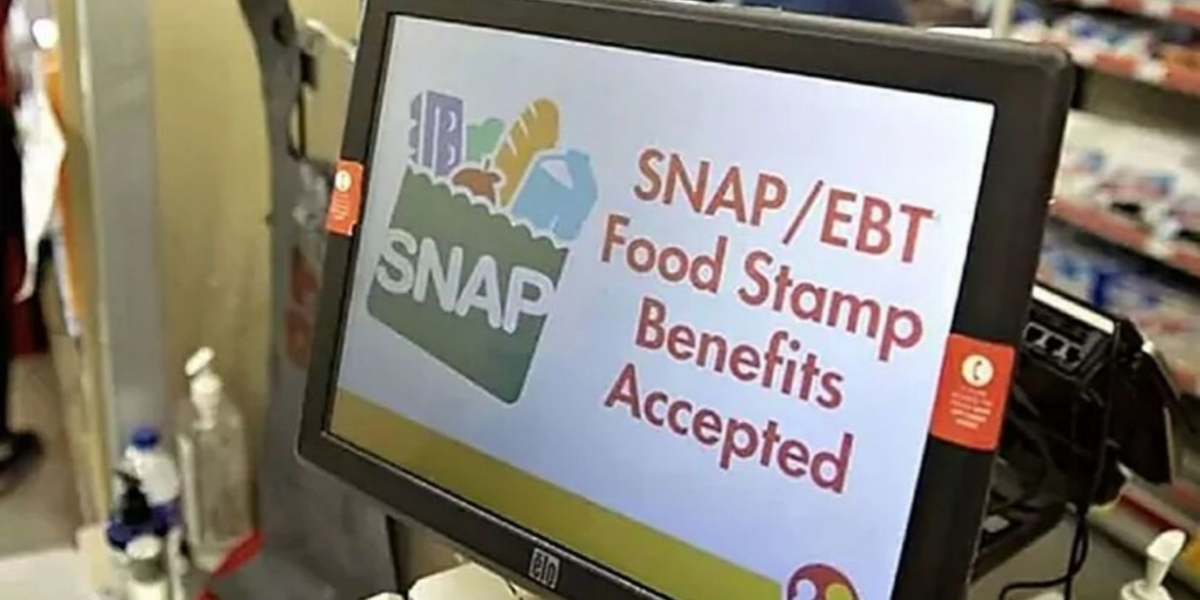It is Austin, Texas. Legislators in the 89th Texas Legislature submitted 11,503 bills to the Senate and House of Representatives over the course of its 140 days.
As of the 22nd of June, which was the last day that Abbott could exercise his veto power over potential legislation, he had signed 1,155 bills. There were twenty-six bills that were vetoed, and immediately, 255 of them will go into effect.
They range from improving the water infrastructure of the state to addressing education issues, which include grades in elementary, middle, and high school as well as higher education. These changes will take effect immediately.
Below is a look at some of those bills.
Higher education
- According to the language of House Bill 2081, the Building Better Futures Program is going to be established in order to provide educational and occupational skills support for students with intellectual disabilities and developmental disabilities who are attending public and private higher education institutions in the state of Texas. The administration of the program will be the responsibility of the Texas Higher Education Coordinating Board, which will also be responsible for developing a “competitive application process” for the purpose of awarding funds to institutions that are eligible for the program. According to the bill, in order for participating institutions to be able to provide a “comprehensive transition and postsecondary program for students with intellectual or developmental disabilities,” they must either have received approval from the United States Department of Education or already be in the process of receiving approval.
- According to the language of Senate Bill 326, higher education institutions are required to take into consideration a definition of antisemitism that was previously adopted and codified by the Texas Government Code when determining whether or not a student’s violation of the code of conduct “was motivated by antisemitism.” In addition, the legislation is applicable to public schools located within the state.
- The issue of “academic fresh starts” is addressed by Senate Bill 365. In particular, it would make it possible for a higher education institution to exempt a Texas resident from having to take college courses that were completed between five and ten years prior to re-enrolling as an undergraduate student. For the time being, the language of the bill stipulates that the only courses that could be waived are those that were taken ten years or more prior to the semester in question. This bill is not required; rather, it is an option that universities have the ability to take advantage of. In accordance with the bill, a university would be required to adopt its respective academic fresh start policy, publish it on the institution’s website, and then submit it to the Texas Higher Education Coordinating Board. A period of time during which an educational establishment would take into consideration the course credits or grades of an applicant in accordance with the policy must also be included.
- Senate Bill 2231: The second week of October is designated as Free College Application Week for all public higher education institutions, and Senate Bill 2231 eliminates the need for applicants to pay their application fees to colleges and universities.
Education
The Texas Education Code will be amended by Senate Bill 27 to include additional requirements for the curriculum regarding personal financial literacy. It is required by the legislation that students in high school receive instruction on a variety of topics, including but not limited to budgeting, saving, investing, and more.
- Senate Bill 207: Appointments with mental health professionals are classified as excused absences, according to Senate Bill 207, which clarifies this definition. Starting with the 2025-2026 school year, the legislation will take effect.
- It is prohibited by Senate Bill 314 for certain food additives to be included in meals that are provided at no cost or at a reduced cost by school districts or charter schools that are open to students with open enrollment. Meals that are provided through the National School Breakfast and Lunch Programs are included in the scope of this legislation. Among the items that are not allowed are:
- It is prohibited by Senate Bill 314 for certain food additives to be included in meals that are provided at no cost or at a reduced cost by school districts or charter schools that are open to students with open enrollment. Meals that are provided through the National School Breakfast and Lunch Programs are included in the scope of this legislation. Among the items that are not allowed are:
- Brominated vegetable oil
- Potassium bromate
- Propylparaben
- Azodicarbonamide
- Butylated Hydroxyanisole
- Red 3
- Red 40
- Yellow 5
- Yellow 6
- Blue 1
- Blue 2
- Green 3
- Citrus red 3
- Orange B
- INS No. 150c/ammonia caramel (Class III)
- INS No. 150d/sulfite ammonia caramel (Class IV)
- Titanium dioxide
- Sen. Paul Bettancourt (R-Houston), who wrote Senate Bill 569 with a few other lawmakers, says that it brings Texas’ virtual learning framework up to date for all students in the state. In a news release announcing the signing of the bill, Bettancourt said that it will have an impact on the 51,884 students who are currently taking virtual classes. He said that number of students would double by 2028. Over 5.5 million students in Texas public schools are currently taking part in hybrid instruction. The Texas Commission on Virtual Education gave advice that is part of the law. The bill makes us think of the following:
- Makes a way for students to go from high school to college and then to a career by letting them do up to two years of college work while they are still in high school.
- Helps students get jobs by letting them set their own hours for their apprenticeships.
- Sets “rigorous standards” and keeps an eye on companies that offer virtual education.
- Senate Bill 870 says that school marshals at both public and private schools can carry a gun openly while wearing a uniform that shows what their job is. The bill changes laws that let school marshals carry a concealed handgun on school grounds if they were appointed by the governing body of a school district and wore a uniform that showed their job.
- Senate Bill 1418 fixes a technical error in a reference to one of the state’s standardized testing methods that was made a long time ago. As a result of the bill, the Texas Education Code no longer uses the phrase “ACT-Plan.” Instead, it uses “PreACT.”
- Senate Bill 2314 sets up an online application system called “My Texas Future” to help more public high school students learn about and apply to colleges and universities online. An analysis of the bill says that the portal will also match students’ academic information with the requirements for getting into colleges and universities in Texas that are part of the program.
- Senate Bill 2929 changes the current Texas Education Code so that officials, referees, and judges at UIL-sponsored events can kick people out of the event without having to give them a verbal warning or see them do something wrong more than once. The law will be in effect for the 2025–2026 school year.
Health
- House Bill 18 makes it easier for rural hospitals across the state to stay open and make money. The bill has parts that allow for the creation of programs that will improve access to health care services and give money and other resources to hospitals in rural areas.
- Senate Bill 31 makes it clear when Texas’s abortion ban doesn’t apply. An exception to the law that says abortion is illegal can be made if a doctor thinks the procedure is medically necessary for the patient’s health.
- That’s why Senate Bill 842 protects doctors who work at “combative sports events” in Texas from being sued for medical mistakes they make during the event.
- In Texas, Senate Bill 1409 sets up a way for “post-secondary educational institutions” to offer health insurance plans to students and their families. An analysis of the bill says that the plans will not be “traditional health insurance,” but rather “institution-sponsored health benefits.” In order to follow the new law, institutions must be clear with potential students about the benefits they offer, like how they won’t have to follow state insurance rules. The bill also says that institutions that offer the benefits can’t make people wait more than six months before they can get treatment for a condition they already had.
- Senate Bill 1901 changes the terms of the council and makes the Opioid Abatement Fund Council’s ethics and management clearer and stronger. According to an analysis of the bill, the group was set up to make sure that the money recovered through statewide opioid settlement agreements with companies is distributed fairly and used to fix the opioid crisis. The terms of council members will now be staggered every six years, and the law calls for a number of administrative changes, such as making it clearer what kinds of conflicts of interest might happen.
- A study of the bill says that Senate Bill 1998 lets the Texas Higher Education Coordinating Board work with groups to “establish and operate a statewide pediatric subspecialty preceptorship program” for medical students in Texas.
Voting
- Senate Bill 914 lets the government of a city with 9,000 people or fewer that is in a county that is less than 6,200 square miles change the date of its general elections to the same date as the rest of the country, which is November. This law only affects cities that have a council-manager form of government. Some parts of the bill will no longer be valid after January 1, 2027.
- Senate Bill 1025: Voters will see the words “THIS IS A TAX INCREASE” on their ballots if there is a proposal to raise taxes for cities, counties, and special purpose districts. This is because of Senate Bill 1025. The bill makes changes to the current Education Code.
Animals
- House Bill 135 People and businesses that breed, sell, or take care of exotic and game animals will pay less in taxes thanks to House Bill 135. The bill’s language says that it changes the Texas Tax Code so that purchases related to animals don’t have to pay sales and use taxes. But the bill keeps the exemptions that are already in place for agricultural items like
- Work horses, mules, and other animals
- Animal food and seeds that people eat
- Things like fertilizers and machines used in farming
Housing
- House Bill 21: New rules for how housing finance corporations can work are added by House Bill 21. According to the bill, they can charge fees, which can then be used to fund their operations and make it easier for them to provide affordable housing.
House Bill 2730 makes it clear what a chief appraiser of an appraisal district can and cannot do when it comes to confirming who is eligible for residential homestead property tax exemptions. The new law says that a chief appraiser can’t make someone who has been given a homestead exemption file a new application or prove that they are still qualified unless “there is reason to believe that the person no longer qualifies.” If the appraiser thinks the homeowner might not be eligible for an exemption, they have to let the homeowner know in writing. The bill says that the appraiser has to give specific reasons for their opinion, along with the right application form. - House Bill 3093 makes it clearer how “certain” ad valorem tax rates are calculated for taxing units in Texas. This is especially important for property owners who want to appeal an appraisal review board’s decision about their property’s value. The bill changes the current tax code and sets out how taxing units will figure out their rates in years when property owners tell the unit they want to appeal a decision made by an appraisal review board.
Water
- House Bill 29 Municipally owned utilities are required by House Bill 29 to report water losses to the Texas Water Development Board. This makes sure that resources are properly managed and tracked. The law also allows administrative fines of up to $25,000 per violation for utilities that don’t follow the rules for reporting.
- Senate Bill 480 changes the current Government Code so that local governments can work together with the state, the federal government, or other local governments on water resources research or planning. Some of the problems that the law could solve are:
- Planning for regional water
- Plan for flooding
- Taking care of aquifers
- Senate Bill 1169 lets agreements allow public entities to work together to provide water or sewer services. The language of the bill says that the entities are allowed to issue bonds and charge fees to pay for necessary projects.
- Senate Bill 1194 The Central Texas Water Alliance (CWTA) is created by Senate Bill 1194. Its job is to make sure that local governments and other groups working together on water resources across the state do a good job. The bill’s language says that the CWTA will be able to issue bonds and pay for water-related projects. It will also be able to charge fees for its services. The law also gives the CWTA the power to take property without paying for it. That being said, it can’t use the power “to condemn land in order to acquire rights to groundwater or in order to acquire water or water rights.”
- Senate Bill 2662 is mostly about making sure that water and sewer utilities, as well as the Public Utility Commission (PUC) of Texas, follow through on their drought plans in order to help people save water. The state’s PUC will be in charge of the plans and making sure that all the utilities follow them.
Climate, environment and energy
- House Bill 1089 The Gulf Coast Protection Account, which is part of House Bill 1089, will be run by the General Land Office and provide money for projects that aim to safeguard and improve the state’s Gulf Coast area. The program would get its money from grants, donations, and gifts.
- An analysis of Senate Bill 75 says that it sets up the Texas Grid Security Commission. This commission will work under the direction of the Texas Division of Emergency Management (TDEM). The commission will look at all the threats to the Electric Reliability Council of Texas grid and find areas where cities’ most important service systems are weak.
- According to Ballotpedia, Senate Bill 1147 officially removes the State of Texas from the Interstate Mining Compact. This is an agreement between states to control mining activities “in terms of conservation and restoration.” The bill was looked at and it was found that Texas joined the Interstate Mining Compact Commission in the 1970s. According to the study, one of the main reasons the state is leaving the commission is because of the high cost of membership, which can reach $50,000 a year. An analysis said that the bill also gets rid of the law that allowed Texas to join the compact.
- An analysis of Senate Bill 1468 says that it gives the Texas A&M University System Board of Regents the power to “build, acquire, improve, extend, and equip utility systems located on university system property.” The board will be able to sell bonds to help pay for improvements and more utility services. The bill focuses on the research and new ideas being used at Texas A&M’s RELLIS campus in Bryan, Texas.
- Senate Bill 2351 makes sure that concrete batch plants (CBPs) follow the latest emission controls and protect the air quality of nearby communities even more when the construction of a CBP is delayed in some other way.
Crime and law enforcement
- According to the bill’s language, House Bill 48 sets up a formal unit within the Texas Department of Public Safety to stop oilfield theft. The bill says that the unit will be in charge of fighting theft of oil and gas equipment, which is a big problem in the industry. The unit would be able to arrest people who are suspected of stealing and work with other law enforcement agencies to do so.
- Under certain conditions, Senate Bill 1080 makes it easier for people with criminal records to get licenses to do certain jobs. If, on the other hand, an application is sent in by someone who is currently in the Texas Department of Criminal Justice, the license will be held until the person is freed. A license that someone has held before could be taken away if that person goes to jail for a crime related to their license duties or responsibilities, or their crime was sexually violent.
- Senate Bill 1537 says that a criminal case must have an interpreter present if a party or the court decides that a person being charged or a witness does not understand or speak English. According to the bill’s language, if an interpreter isn’t able to translate well, the defendant or witness could ask the court to provide someone else to act as an appointed interpreter.
- Senate Bill 1646 changes the current law and makes it more serious to steal copper or damage fiber optics. A new definition for “critical infrastructure facility” is also part of the law. The law is aimed at thieves, but it also requires companies that recycle metal to keep accurate records of all transactions involving copper or brass materials. According to an analysis of the bill, it also sets rules for how to buy and get the materials and requires training to stop theft.
- Senate Bill 2371 sets up a way for people who find skimmers on ATMs, point-of-sale terminals, and virtual currency terminals to report them. This is done in response to the growing crime of card skimming. Under the new law, if a skimmer is found on a device, it must be turned off and reported to the Financial Crimes Intelligence Center and the local police. The terminal will then be inspected and investigated.
Finances
- House Bill 1041 changes the Insurance Code so that caregivers who help disabled people in places like assisted living centers can’t be named as beneficiaries on their own life insurance policies unless they are related to the person who died. The law is meant to keep caregivers from having a conflict of interest and to protect vulnerable people from being taken advantage of by caregivers who could make money from their death.
- Senate Bill 529 changes the current Tax Code so that cities and towns with 130,000 or more people can get and spend tax money from businesses near hotel and convention center projects. The money could be used to help build infrastructure that will improve the tourism and hospitality industries in a municipality.
Infrastructure and utilities
- A property owners’ association can’t stop people from installing solar roof tiles on their homes as much with House Bill 431 in place. For the bill to be passed, any rules must be “reasonable” and cannot “significantly increase installation costs or decrease the solar panel system.”
Transportation
- House Bill 1672 sets up an easier way for motor carriers to appeal decisions made by the Texas Department of Motor Vehicles (DMV).
- Senate Bill 1555 sets up a grant program for railroad grade separation projects that will be run by the Texas Department of Transportation. The goal is to improve public safety, boost economic growth, and cut down on traffic. The program would focus on railroads at intersections with roads that aren’t part of Texas’ highway system, as well as those at the points where railroads and pedestrian crossings meet. The law also says that local governments have to match the grant with 10% of their own money. The Texas Transportation Commission would have to agree to each grant before it could be given.
Miscellaneous
- House Bill 334 sets up a family leave pool program so that county workers can share time off they haven’t used. The program would have to be officially set up by the county commissioners’ court. The bill says that if a program were to be set up, the county judge would either run the pool themselves or choose someone to do that job. County workers would have to apply to the pool in order to get benefits.
- People who live in counties where House Bill 554 has been approved by a commissioner court will be able to buy fireworks on or before Juneteenth.
- Senate Bill 65 sets new rules for the hours that some county workers must work. These rules apply to department heads, assistants, deputies, and other workers whose pay is set or approved by the county commissioners’ court.
- Senate Bill 599 says that a “political subdivision” can’t make licensed family homes and childcare homes follow health and safety rules that are higher than those set by the Texas Health and Human Services Commission. The law changes the Local Government Code that is already in place.
- Senate Bill 1119 aims to make the law clearer by limiting the liability of water park entities, such as owners and operators of commercial properties designed for water-related recreation, for injuries that happen at the park. To keep the park from being responsible, water parks must “post and maintain a sign in a clearly visible location at or near the entrance to the park.” The law does not cover cases of carelessness about safety, known dangers, bad training for employees, or harm done on purpose, though.
- Senate Bill 1706 changes the Texas Government Code so that state government bodies can meet behind closed doors to talk about defense, military, or space issues involving NASA or the U.S. Department of Defense.
- A bill analysis says that Senate Bill 1921 is a “cleanup bill” for the state’s tourism public improvement districts (TPIDs). Four things about current TPID laws are made clearer by the law:
- This makes it clear who can sign a petition to create a tourism TPID.
- Clarifies that tourism TPID funds can only be used for certain things, like “hotel-related advertising, promotion, or business recruitment.”
- Makes it clear that a tourism TPID can include both hotels that are already open and properties that are set to open during the TPID term.
- Gets rid of old language that only applied to cities when making a tourism TPID because new laws for 2019 let all Texas cities make a tourism TPID.


 by
by 

